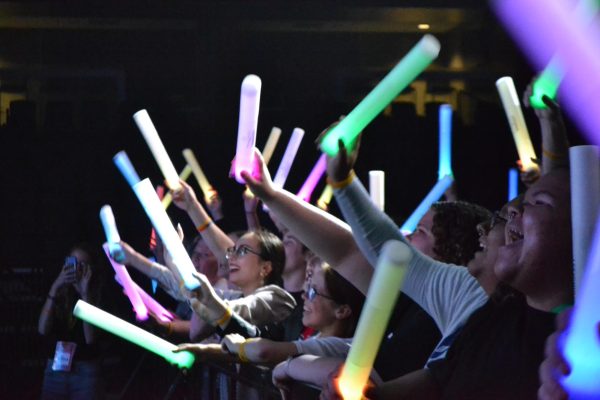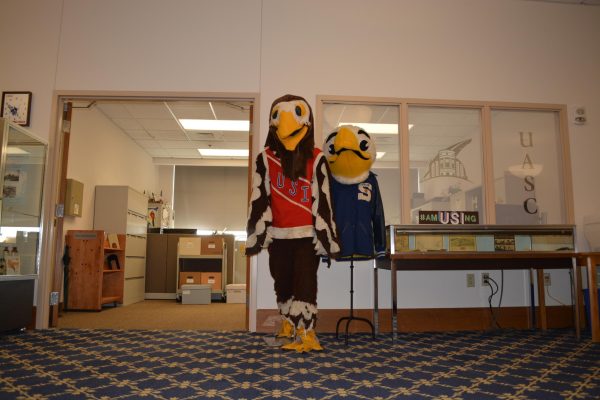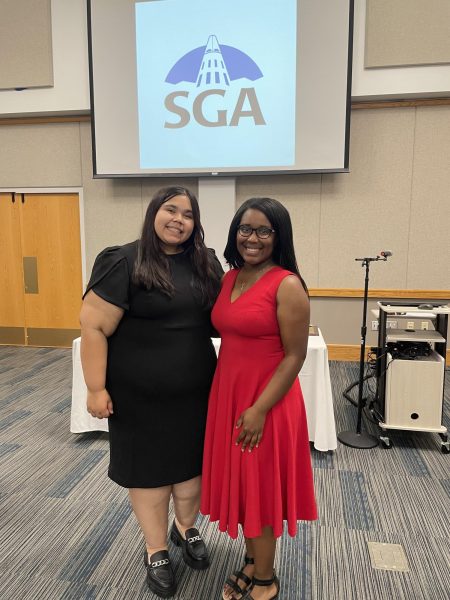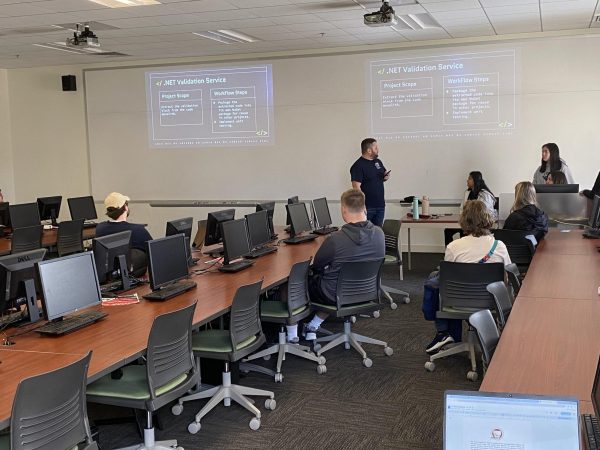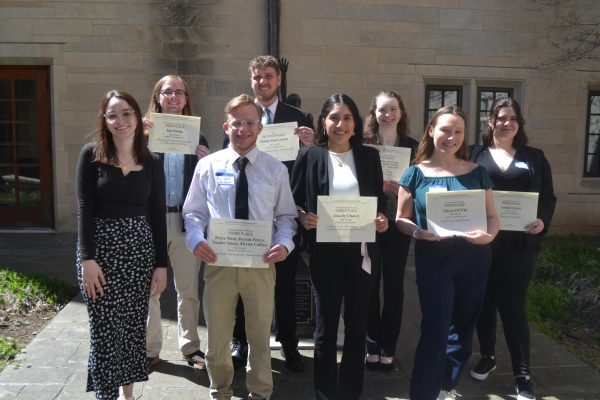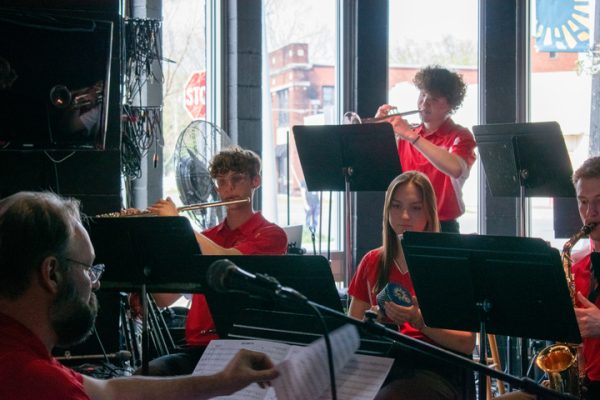Crime report details decrease in arrests, discipline
November 7, 2018
On-campus arrests and overall disciplinary actions have fallen to their lowest levels in over three years.
The annual Security and Fire Safety Report released by the university in early October sheds new light on campus crime reports from the 2017 calendar year.
The report is mandated by the Jeanne Clery Act, a federal statute signed into law in 1990 that requires universities to disclose campus security and crime statistics every year.
On-campus arrests for 2017 dropped nearly 51 percent year over year and the campus saw a 12 percent drop in total disciplinary actions.
Of the crime statistics that reported an increase in campus was rape. Five total incidents were reported in 2017 as opposed to just three in both the 2015 and 2016 calendar years.
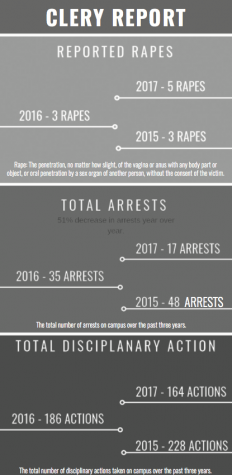
On-campus arrests for 2017 dropped nearly 51 percent year over year and the campus saw a 12 percent drop in total disciplinary actions. Five total incidents were reported in 2017 as opposed to just three in both the 2015 and 2016 calendar years.
Director of Public Safety Stephen Bequette said he does not think the Public Safety office has been getting that many reports in regards to sexual offenses.
“We have so many other avenues to report things, I do believe that the Title IX office is being utilized fully. Because I know (Title IX coordinator Carrie Lynn) is busy,” Bequette said. “But we have continued to reinforce the educational aspect here at the university and encourage more people to report because we have a process.”
He said the overall reporting process is so good to the effect that officials from USI have been asked to present at other institutions about the university’s process.
“I feel we have somewhat of a model policy in the state and students and others on campus have utilized that,” he said.
Although disciplinary actions dropped across the board, the highest percentage of the 164 actions reported came from those in violation of liquor law.
Bequette said he believes the reasoning behind the high percentage of violations is simply the discretion of the sheriff’s deputies that were working on campus at the time.
“For them not to cite or arrest, it is their discretion, and during that time period remember they were in an off-duty capacity,” he said.
Five full-time sheriff deputies began patrolling campus in August. The state of Indiana will fund a $750,000 annual line item in the university’s budget for campus security, which is separate from the one-time funding request for PAC renovations.
Bequette said it will be interesting to see how it goes with the new system in place.
“If the deputies will continue to exercise discretion and let the university handle it or actually take matters into their hands and get the system involved by issuing a citation or by actually doing a physical arrest,” he said.
Bequette also said another reason for the drop is that he believes many students who are partying are doing so off campus.
“We have really no data to back it up, but just word of mouth and talking with people, I think a lot of the people that have elected to party have done so off campus, in other locations, and then they will come back to campus instead of doing it on campus,” Bequette said. “So I think our calls for service for those type of matters were down.”
He said he confirms those type of reports with the Vanderburgh County Sheriff’s Office (VCSO), state excise police with other local law enforcement then substantiating that data.
“We are encouraged to do so by the Department of Education,” he said. “According to them, we have to make a good faith effort to maintain those statistics.”
Asked whether the dry campus policy contributed to alcohol being the leading disciplinary action, Bequette said he would not delve into what his opinion on the matter was.
“I know other universities have taken that step to legitimize and not make it a dry campus totally, but I support the university policy as it is and have upheld it enough to assist and enforce that and train our people to do so,” he said. “There are times when the campus isn’t dry when we have an event on campus or the USI theatre people are here. I’m not sure how that would affect that.”
During last year’s batch of crime results, Bequette said Public Safety was still adjusting to new guidelines imposed by the new presidential administration elected in 2016.
““We have the Trump administration pulling the reins back a bit,” Bequette told The Shield in Nov. 2017, “So each political machine is going to have their own take on things.”
He said Public Safety is always looking to do something that will benefit everyone on campus faced with issues, but guidance from the Department of Education is still changing under the Trump administration and Secretary of Education Betsy DeVos.
“The due processes that we have provided, we have not backed off of yet,” Bequette said. “The only one we have a little bit is the timeframe to conduct an investigation.”
Previous reporting guidelines under the Obama administration restricted the timeframe for campus law enforcement to conduct an investigation.
“We take the time needed to do a proper investigation,” he said. “Not the rigid deadline that was before, you had to go through certain things to let people know you were extending the investigation and (investigations) take time.”
The university reported its first and only case of intimidation with a bias of disability.
“In the incident it can really really upset someone that obviously may not upset someone else, either because of an education issue, not knowing what that bias is to that person, and it’s obviously an everlasting training issue with my staff,” Bequette said. “We want to make sure (Public Safety staff) are aware of this and we struggle with that to keep with things that are going on.”
Bequette said there is always a possibility that his office could let someone down if they did not take an incident as seriously as it was considered to them.
“It is an ever changing thing with social media, so prevalent and so much stuff that is out there, who knows what is what some times, because there is fake stuff that goes out that means different things to different people,” he said. “We are a fact gatherer here on campus to report things that people want to report to us, that’s part of what we do.”
Public Safety’s staff has not increased according to Bequette. He said they try to educate as many others on campus as possible.
“We have really started on an outreach across campus because people under stress react differently to (emergency situations),” he said. “In the civilian field you’re taught dial 911, but when that hits you, sometimes people go brain dead and they don’t train enough to know what to do because they think it is never going to happen to them, or someone else is going to call there are lots of excuses, so I think that may have contributed to the calls for service we get.”
Bequette said his officers work with Housing and Residence Life (HRL) staff on how best to react to certain situations.
He said, however, the numbers speak for themselves and at the end of the day, it’s about officer discretion.
“It’s all about discretion and the group (of deputies) that has been here so far have allowed us to do our job and our standing by to keep the peace,” he said. “But they know when they need to intervene and take things into their own hands, we are just going to have to wait and see. When the weather warms up and things are different, it all depends on our clientele and dealings with them.”
Assistant Dean of Students Laurie Berry told The Shield in October that overall, she has not seen an increase in policy violations.
“Although we run our reports at the end of the year, I’m not seeing a lot of difference as I recall with what we were doing last year,” she said. “So there are some alcohol issues going on, but overall I am not seeing a great influx nor am I seeing an influx in the type.”
Berry told The Shield that education is the way the DOSO office approaches any potential violations.
“Our whole aim of the conduct process is to help people come into compliance and follow the rules and regulations because the outcome is we want them to successfully navigate the educational experience, get their degree and move forward,” she said.
Berry said everyone makes mistakes along the way and everyone grows and changes.
“Hopefully we have set up a process that allows people to reflect on that change and move on to be productive citizens in the world,” she said.









